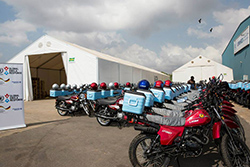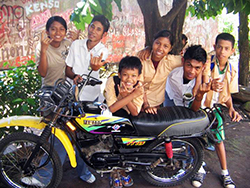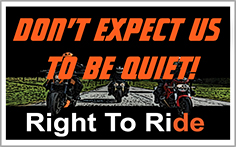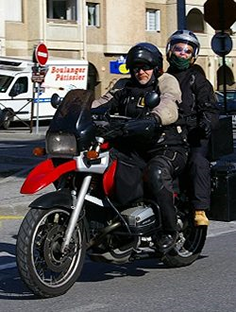 Last month we queried whether the ETSC – European Road Safety Transport Council – a European based safety body, had lost the plot.
Last month we queried whether the ETSC – European Road Safety Transport Council – a European based safety body, had lost the plot.
We did this because Antonio Avenoso, ETSC Executive Director had stated that, “Amidst the headlines surrounding the possibility of an outbreak of Ebola in Europe over the last few weeks, I can’t help but question our society’s perception of risk.”
He then commented that Ebola had only caused less than a handful of people to die from Ebola in Europe and those that tragically have were all medical staff in direct contact with sufferers and compared that on average, 500 people die on our roads. Therefore “the political response to the daily tragedy of those killed by speeding or drunk drivers is very often lacklustre, to put it mildly”, he said!
We raised concerns that ETSC used Ebola as a means to promote their safety stance (in bad taste).
Health With Bikes
However back to the title of this article – Health With Bikes – the UN reports that, “Four hundred cooler box-equipped motorbikes for the Ebola Response were officially handed over to the UN Humanitarian Response Depot by German Ambassador to Ghana Ruediger John, and will be used to bring blood samples to labs in the most affected areas of Sierra Leone, Liberia, and Guinea, thanks to a donation today from Germany to the United Nations.”
The head of the UN Mission for Ebola Emergency Response (UNMEER), headquartered in Accra, Anthony Banbury, thanked the German people for their donation. “It’s really been a great partnership. It’s an excellent example of international collaboration,” he said.
UNMEER spokesman Ari Gaitanis said: “Using these bikes will help cut down transport times, in some areas quite dramatically, given some of the terrain involved.”
Meanwhile motorcycles are used in other numerous ways for our health through Para-Medics, volunteer Blood Bikes (delivering blood and other urgent medical supplies including baby milk).
Also in other developing countries through organisations – projects:
Riders For Health – Manages and maintain vehicles – including motorcycles – for health-focused partners in sub-Saharan Africa. Their expertise in transport management enables health workers to deliver vital health care to rural communities on a reliable and cost-effective basis.
Motorcycle Outreach – Works closely with the UK Charity Riders for Health (RfH) so that the pioneering system of ‘zero break-down’ vehicle management can be introduced in other developing world countries on other continents, specifically South East Asia, Indonesia and Latin America.
Motorcycle Outreach is currently concentrating on fundraising for the continued support and expansion of Health for All in Indonesia. Health for All (HfA) is a project supported by Motorcycle Outreach providing motorcycles to support primary health delivery in Nusa Tenggara Timur (NTT) in eastern Indonesia.
Shuddering
 Moving on a month and ETSC has commented with a briefing: ”Mid Term Review of the European Commission’s Road Safety Policy Orientations 2011-2020” and a briefing on the “Road safety priorities for the EU in 2015” with a, “Memorandum to the Latvian Presidency of the Council of the European Union.”
Moving on a month and ETSC has commented with a briefing: ”Mid Term Review of the European Commission’s Road Safety Policy Orientations 2011-2020” and a briefing on the “Road safety priorities for the EU in 2015” with a, “Memorandum to the Latvian Presidency of the Council of the European Union.”
Regarding motorcycles aka Powered Two Wheelers (PTWs) – ETSC states that as vulnerable road we face a much higher risk of being killed than other road users and call for the EU to, “evaluate the opportunity of introducing eCall and Intelligent Speed Assistance as a standard for new PTWs”.
eCall is an electronic “in vehicle” safety system that can automatically call emergency services if you have an accident – even if you are unconscious. The system informs rescue workers of your exact whereabouts, and apparently the ambulance and the fire brigade will be on their way in minutes. It is being touted that the system will work anywhere in Europe, even if you cannot speak the local language.
ETSC says that, “Intelligent Speed Assistance technologies bring speed limit information into the vehicle. Navigation devices in the vehicle (typically GPS or GPS enhanced with additional information) give a precise location and heading, whilst an on-board map database compares the vehicle speed with the location’s known speed limit. What is then done with this information varies from informing the driver of the limit (advisory ISA), warning them when they are driving faster than the limit (supportive ISA) or actively aiding the driver to abide by the limit (intervening ISA). All intervening ISA systems that are currently being used in trials or deployment can be overridden.”
Sometimes at Right To Ride we shudder at what the future holds for motorcycling.
Although while we shudder at the future for motorcycling in the “European State” especially in consideration of the comments by the ETSC, Health with Bikes demonstrates they are being used for the benefit of all in various roles and guises in different continents so a little step back into the reality of what motorcycles can do for humanity is good for the soul!
Links & Information
ETSC – Mid Term Review of the European Commission’s Road Safety Policy – Click Here
Intelligent Speed Assistance – Myths and Reality – ETSC position on ISA – pdf – Click Here
Cooler box-equipped motorbikes donated to UN will speed up Ebola testing process in West Africa – Click Here
Riders For Health – www.riders.org
Motorcycle Outreach – www.motorcycleoutreach.org
Leave Comments On Right Toi Ride EU – Click Here


